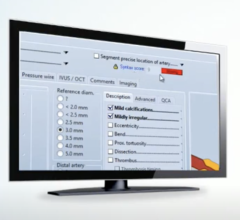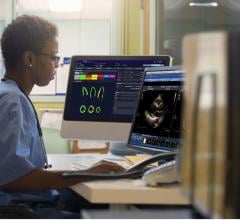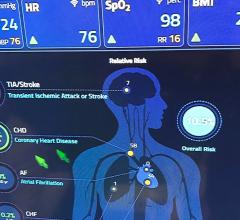
A Delaware hospital implemented IntelliSpace Cardiovascular to allow for administrative reporting beyond the echo lab at levels not previously capable with its earlier system.
With any new system implementation in a healthcare system, there is a fear of downtime and potential adverse impact on operations and patient care. Recently, a hospital in northern Delaware converted their long-standing Philips Xcelera Image and Information Management platform to Philips IntelliSpace Cardiovascular.
This next evolution cardiovascular information system (CVIS) from Philips, IntelliSpace Cardiovascular presents patient data in an easy-to-read, chronological format. It aggregates all relevant patient information and collects data from across an individual’s cardiovascular continuum of care. Physicians can log onto a single workspace for immediate access to a patient’s past studies, along with their images and reports. And through interfacing with other existing clinical systems and enterprise (EMR) systems, IntelliSpace Cardiovascular brings together information seamlessly and efficiently for the many different roles throughout the hospital that need access to this patient data.
Improving Visibility Within the Cardiovascular Business
For the Delaware hospital, the implementation of IntelliSpace Cardiovascular has allowed for administrative reporting beyond the echo lab at levels not previously capable with the earlier Xcelera solution. And to keep workflows consistent, the clinical module for managing echo studies remained unchanged when the hospital transitioned its systems, allowing staff to maintain their clinical routines without having to undergo a significant learning curve.
IntelliSpace Cardiovascular improves upon Xcelera’s ability to pull in non-echo cardiology information. The system now draws from multiple modality sources and makes them accessible from anywhere on a single screen. Its administrative reporting capabilities benefit hospitals of all sizes. With the need to track data such as the number of cardiac cases brought to a hospital, or where referrals are coming from, it is increasingly important to keep accurate and organized records and to be able to retrieve them at a moment’s notice. Unit management reports can now be generated quickly and easily, where previously this was done manually or via spreadsheets, with data having to be extracted from multiple disparate systems. Since cardiovascular data is in one place, you don’t have to be a SQL programmer to get reports that make a difference to your business.
“Weekly and monthly reports are now automatically generated and sent to those who need them. Having greater visibility into the operations of the cath and echo labs is one of the biggest benefits for hospitals,” stated Jon Kamerman, cardiology informatics sales specialist, Philips.
The Benefits of IntelliSpace Cardiovascular
Physicians can see that this next-generation system also provides hospitals with the ability to reduce waste within the department. The number of duplicate studies can be diminished based on the ability to view a patient’s history of their cardiac care on a single screen, and costs are reduced by avoiding duplicate scans.
A key attribute of the new system is the patient timeline. This helps the hospital’s staff see in a graphic form with unique icons all of the different studies that have occurred over the continuum of care for a particular cardiac patient and the history of their disease. With one glance, a physician can answer a number of questions right away without having to dig for information: Did the patient have an echo? Did they have an EKG, and if so, how many times? Did they go to the cath lab? Did they have a stress test?
Anytime, virtually anywhere access is possible: Physicians can use the Web browser on their laptop to open IntelliSpace Cardiovascular and securely look at studies, images and reports. Private information is not downloaded to the computer the physician is using — it sits on servers behind a secure firewall. Users simply log-in to the hospital network using their provided credentials to access patient information.
Since a primary function of IntelliSpace Cardiovascular is to integrate and interface with many existing cardiology information systems, Philips has also released a new-generation integration engine called IntelliBridge Enterprise. “The IntelliSpace Cardiovascular system does what Xcelera did before and much more — from its clinical capability of completely managing images and clinical information in the echo lab, to the connection with third-party solutions via the IntelliBridge Enterprise interface,” said Harry Comerchero, national director of strategic accounts, Philips cardiology informatics division.
Improving Operations with Accreditation
The Philips team helps healthcare systems organize their operations to achieve accreditation through the Intersocietal Accreditation Commission (IAC). The Delaware hospital leveraged the new features of IntelliSpace Cardiovascular to help them become an accredited Echo Lab. During this upgrade, a team led by Kimberly Rubiolo, clinical transformation consultant for Philips, assisted staff in configuring IntelliSpace Cardiovascular to help them meet the criteria for accreditation.
Throughout this program, a consultant works with the hospital to identify, collect and organize all necessary documentation and imaging studies. Collecting data from disparate locations and continuously submitting it to the accreditation agencies was difficult for the Delaware hospital without IntelliSpace Cardiovascular. Rubiolo and her team helped them optimize their workflows and look for inefficiencies and wastes in order to streamline processes for improved outcomes.
“Today healthcare organizations have to contend with tightening revenues, decreasing allowable charges, compliance with mandates required by Medicare and Medicaid and other insurance rules,” said Rubiolo. “In order to remain competitive, accreditation allows labs to differentiate themselves as a preeminent cardiovascular care provider.
“The process to gain accreditation takes about three months, but every process is different. This is not an easy project, and many facilities either fail to meet the required standards or do not complete the accreditation application adequately. The result is that their package is either rejected or returned, which will start a new process to correct the identified deficiencies prior to resubmission,” continued Rubiolo. “Our consultants work alongside the team and provide experienced oversite, then the hospital can confidently present a complete package for approval to the IAC.”
A Seamless Upgrade
The typical timeline for an upgrade like this is around three months. With the added benefit of little to no downtime and a straightforward user interface, Philips is experiencing positive results in implementing the IntelliSpace Cardiovascular solution.
Hospitals like the one in Delaware are appreciating the support provided from start to finish during the implementation process and the ability that IntelliSpace Cardiovascular provides to view and manage the patient’s cardiovascular continuum of care, said Kamerman. “While improvements in communications, time management and workflow are easily noticeable, we’re pleased to work closely with our partners to better understand the numerous clinical, operational and financial benefits attributed to the use of IntelliSpace Cardiovascular throughout the hospital.”
For more on IntelliSpace Cardiovascular, visit www.philips.com/intellispacecardiovascular


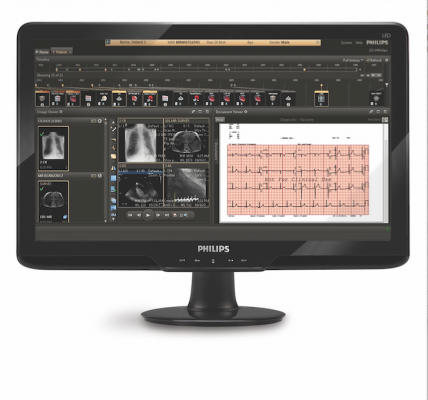
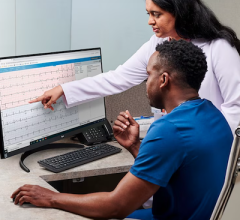
 November 06, 2025
November 06, 2025 


